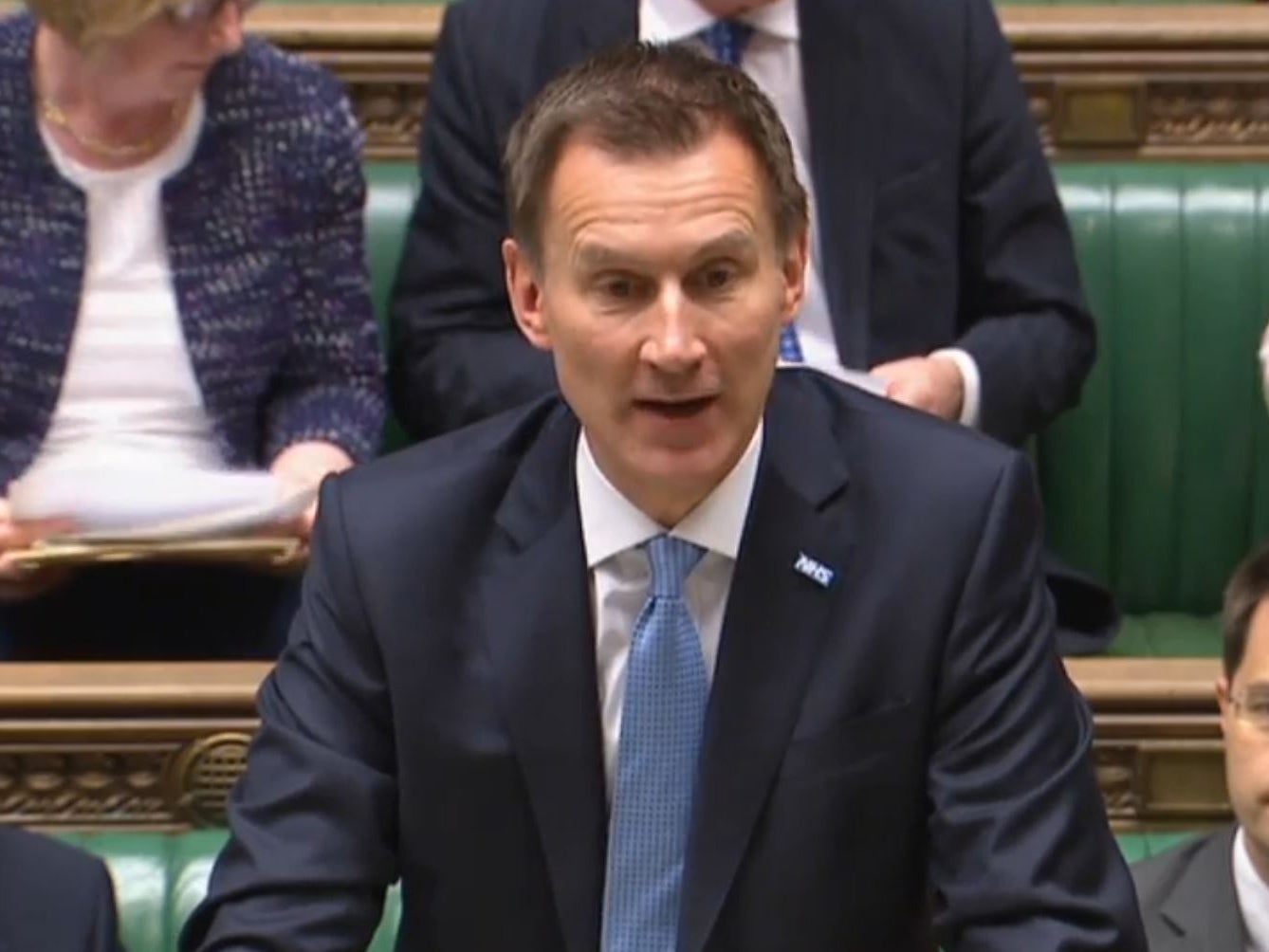While the Tories appear to tear themselves apart over Brexit, they are preparing to fight the next election by raising NHS spending
Never mind Brexit, it could be the squeeze on the health service that the voters really care about at the next election – surprisingly, perhaps, Theresa May seems to be doing something about it


Your support helps us to tell the story
From reproductive rights to climate change to Big Tech, The Independent is on the ground when the story is developing. Whether it's investigating the financials of Elon Musk's pro-Trump PAC or producing our latest documentary, 'The A Word', which shines a light on the American women fighting for reproductive rights, we know how important it is to parse out the facts from the messaging.
At such a critical moment in US history, we need reporters on the ground. Your donation allows us to keep sending journalists to speak to both sides of the story.
The Independent is trusted by Americans across the entire political spectrum. And unlike many other quality news outlets, we choose not to lock Americans out of our reporting and analysis with paywalls. We believe quality journalism should be available to everyone, paid for by those who can afford it.
Your support makes all the difference.As the Brexit problem grows more acute, and dominates the reporting of politics ever more completely, what do the voters think is the biggest issue facing the country? According to Ipsos MORI last month it was the NHS. Brexit came second.
There are people in the government who realise this, and the negotiations between ministers about funding for health and social care services are just as important as the remarkable arrangements for discussing the post-Brexit customs regime that were set up this week.
Theresa May is trying to break the customs deadlock by staging simultaneous debating competitions: David Davis, the Brexit secretary, has to defend “no customs union” against two soft Brexiters; while David Lidington, the de facto deputy prime minister in all but name, has to defend the “half customs union” against two hard Brexiters.
My guess is that the half-and-half scheme – May’s customs partnership – will win out in the end, but not yet.
The ministerial discussions about funding the NHS are simpler and more conventional. Jeremy Hunt, the health and social care secretary, wants more money and Philip Hammond, the chancellor, having been told by May to give it to him, is negotiating the terms and conditions.
In contrast to the front-page reporting of the government’s internal Brexit talks, Hunt and Hammond have been almost invisible. Indeed, when Hammond sat next to Theresa May at Prime Minister’s Questions this week I did briefly wonder who he was. At least I wasn’t the contestant on Who Wants to Be a Millionaire who lost £31,000 because she had no memory of Hammond as foreign secretary before Boris Johnson.
The NHS spending negotiations are at a “delicate stage”, according to James Forsyth, The Spectator’s political editor. His reports of ministerial discussions are so authoritative that the prime minister joked at the Westminster Correspondents’ Dinner in February about developing “an app which converts every cabinet discussion directly into a James Forsyth column, thus cutting out the hassle of briefing him each week”.
Forsyth says that Hammond is trying to find an extra £10bn a year by the end of this parliament. This is the kind of boost to NHS spending that could make a difference, about 7 per cent more than needed to keep up with inflation.
He also says that No 10 has cooled on the idea of repeating New Labour’s 1p in the pound rise in national insurance contributions in 2003 because it wouldn’t be paid by pensioners, who would be the main beneficiaries of extra health spending. I think it is possible Hammond might start to impose low rates of national insurance contributions on those above retirement age, but the significant fact is that the argument for higher spending has been won.
This matters because I think Jeremy Corbyn lost the last election because he failed to exploit the NHS to the full. I cannot understand why he didn’t respond to the EU referendum by saying he saw it as much as a vote for £350m a week for the NHS as for leaving the EU. He could then have fought the 2017 election on a promise to increase NHS spending by that amount. He could even have put it on the side of a bus.
Instead of getting worked up about the dishonesty of the claim that we send £350m a week to Brussels, Labour could have turned it to its advantage by promising to spend that much more on the NHS, paid for by higher taxes.
It would have been a bit of a stretch, because it is a huge amount – £18bn a year. But if you include social care funding and talk about cash rather than inflation-adjusted numbers it would be a credible annual increase by the end of this parliament. If Hammond and Hunt put an extra £10bn a year on top of the £1.6bn extra this year they too could be in sight of that target.
What is fascinating about the Hammond-Hunt deal is that, while the government appears on the brink of collapse over Brexit, it seems capable of devising a credible plan for avoiding defeat at the next election, even though it is four years away.
The NHS matters more to voters than the details of a customs arrangement that probably won’t come into effect until after the next election anyway. The Conservatives have to fix their vulnerability to Labour on health and social care now to have a fighting chance at the next election. Slightly to my surprise, they seem to be taking it seriously.
Join our commenting forum
Join thought-provoking conversations, follow other Independent readers and see their replies
Comments